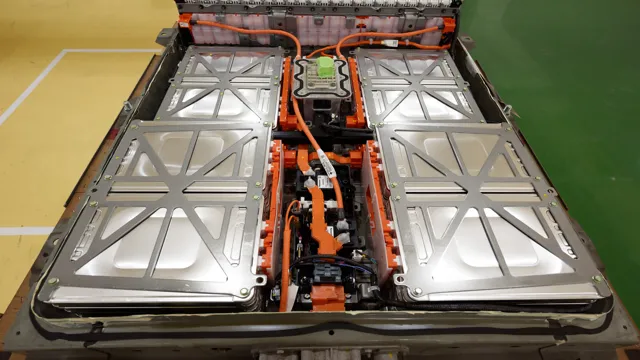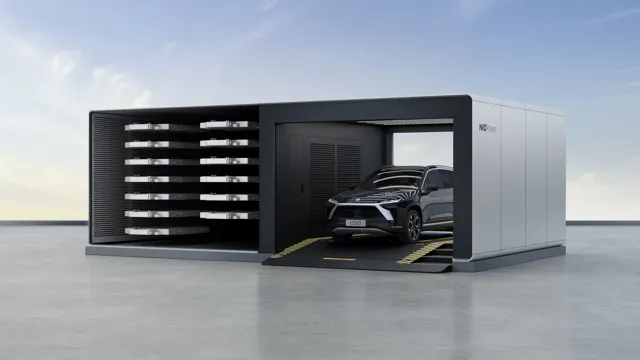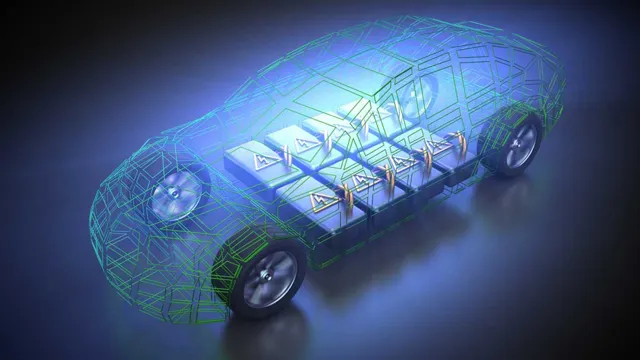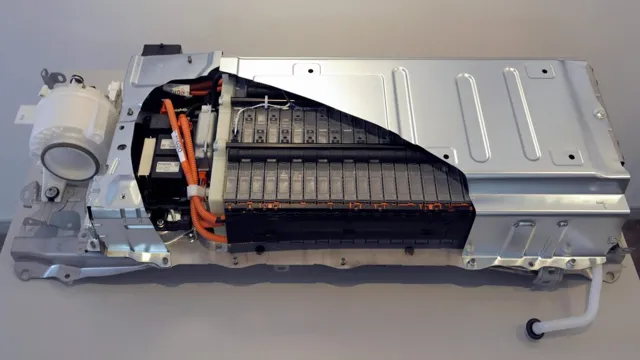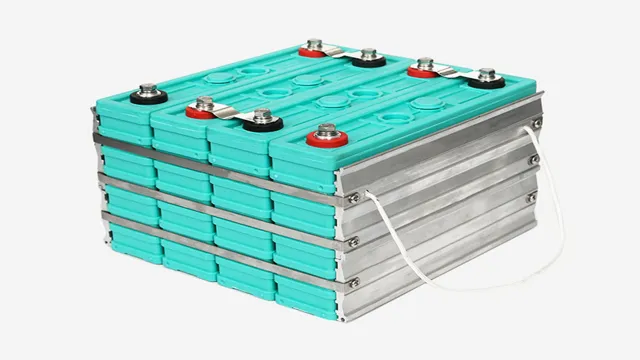The Evolution of Electric Car Battery Costs: A Year-by-Year Comparison
Electric cars have been around for a while now and have been slowly gaining popularity among consumers. One of the major selling points of electric cars is their environmental benefits compared to gasoline-powered cars. However, a key point that often gets overlooked is the cost of electric car batteries.
As with any new technology, the cost of electric car batteries has been a major concern for potential buyers, but over the years, the cost has been decreasing. The cost of electric car batteries has been decreasing as the technology continues to improve, making electric cars more affordable and accessible to consumers. In recent years, the cost of electric car batteries has decreased by almost 89%, thanks to advances in technology and increased production.
In 2010, the average cost per kWh for electric car batteries was around $1,100, but by 2020, that number had decreased to around $137 per kWh. As we move into the future, it is expected that the cost of electric car batteries will continue to decrease, making them even more accessible to consumers. By 2023, it is estimated that the cost per kWh for electric car batteries will be around $100, and by 2028, it could potentially drop to around $73 per kWh.
This is great news for the environment and consumers, as electric cars will become more affordable and widespread. In conclusion, the cost of electric car batteries has been a major concern for many potential buyers, but as technology improves, the cost has been steadily decreasing. These improvements have made electric cars more affordable and accessible to consumers, and it is expected that this trend will continue into the future.
With electric cars being a great way to reduce our carbon footprint and protect the environment, this is great news for everyone.
Overview of Electric Car Battery Cost
Electric car battery cost has seen a significant drop in the past decade. In 2010, the cost of an electric car battery was around $1,000 per kilowatt-hour (kWh), while today, the average cost is below $150 per kWh. Experts believe that by 2025, the electric car battery cost could drop even further to under $100 per kWh.
This cost reduction is due to several factors, such as advancements in battery technology, increasing competition, and economies of scale. With decreasing battery costs, electric cars are becoming more affordable and accessible to the general public. This shift towards sustainability is vital as it reduces dependence on fossil fuels and contributes towards a cleaner environment.
With electric car battery cost decreasing, it is likely that more people will consider switching to an electric vehicle.
Analyzing Cost Trends Over the Years
Electric car battery cost is a topic that has been a subject of intense interest for people who want to understand the developments in the electric car market over the years. The cost of batteries has always been one of the biggest hurdles related to electric cars since the early days of the technology. It is widely known that battery prices have been falling over recent years, and this trend has greatly influenced the adoption and acceptance of electric cars.
According to experts, the cost of batteries has dropped by over 85% between 2010 and 2020, which is an incredible achievement. The reduction in battery prices has had a massive impact on the affordability of electric cars, and it has encouraged people to make the switch from traditional gasoline-powered vehicles.
Factors Affecting Electric Car Battery Cost
Electric car battery cost can be affected by various factors such as battery chemistry, size, and manufacturing costs. The type of battery used in an electric car plays a crucial role in determining the overall cost of the vehicle. Lithium-ion batteries are currently the most popular choice due to their high energy density and efficiency.
However, they are still expensive to produce and require large-scale manufacturing facilities. Battery size also affects the cost, with larger batteries increasing the overall cost of the car. Additionally, manufacturing costs such as labor and equipment also factor into the final cost of an electric car battery.
As technology advances and production processes become more efficient, it is expected that the cost of electric car batteries will continue to decrease, making them a more affordable option for consumers.
Breaking Down the Cost of Electric Car Batteries
Over the years, the cost of electric car batteries has significantly decreased, making electric cars more affordable for the public. In 2010, the average cost of an electric car battery was around $1,100 per kilowatt-hour (kWh). However, by 2019, the cost had dropped to around $156 per kWh.
This reduction in cost has mainly been attributed to technological advancements and economies of scale. Battery manufacturers are now producing batteries in larger quantities, which has helped reduce costs. Furthermore, battery technology has advanced with the introduction of better materials and improved designs.
The decreasing costs of electric car batteries have resulted in an overall reduction in the cost of electric cars, making them a more viable option for consumers. As the demand for electric cars increases, it is expected that the cost of batteries will continue to drop further. With the cost of electric car batteries dropping by the year, it is only a matter of time before this environmentally friendly transportation option becomes more accessible to everyone.
Manufacturing Costs
Electric car batteries have become a topic of interest due to their environmental benefits and fuel efficiency. However, there is a lot to consider when it comes to the cost of manufacturing these batteries. The key factor in determining the cost of electric car batteries is the raw materials involved in their production.
These materials include lithium, cobalt, and nickel, which are becoming increasingly expensive due to their demand. Additionally, the manufacturing process itself can be costly, as it involves complex technologies and cutting-edge equipment. Overall, the cost of electric car batteries is one of the biggest hurdles in making them more affordable and accessible to consumers.
As technology continues to develop and production becomes more efficient, hopefully these costs will decrease and make electric cars a more viable option for the average person.
Research and Development Costs
Electric car batteries are a crucial aspect of the electric car market and their cost structure is a key consideration for researchers and manufacturers. Research and development costs associated with producing these batteries are a significant factor driving costs. Battery life, efficiency, and capacity need to be optimized, which requires continuous investment in research to find better materials and techniques.
This is because electric vehicle batteries have a complicated structure and require different algorithms to optimize the battery’s performance. The battery takes longer to charge and its performance can vary based on environmental factors, such as temperature. Companies are making significant investment in R&D in order to develop cheaper and more efficient batteries that will drive the growth of the electric vehicle market.
As technology advances, it is expected that the cost of batteries will decline and the efficiency of electric vehicles will improve to compete with gasoline cars.
Raw Material Costs
The cost of electric car batteries can vary due to a number of factors, with raw material costs being a prominent one. The three most essential elements required for lithium-ion batteries are lithium, nickel, and cobalt, and their prices can frequently fluctuate based on supply and demand. The cost of lithium has been relatively stable, while nickel and cobalt are more expensive and can impact the overall cost of the battery.
Additionally, the price of these raw materials can depend on the country they come from and the regulations put in place. The good news is that advances in technology are leading to more efficient and less costly methods for the production of electric car batteries, which can help lower their overall cost.
The Future of Electric Car Battery Cost
Electric car battery cost by year is a topic of great interest among car enthusiasts and environmentalists alike. In recent years, the cost of electric car batteries has decreased significantly due to technological advancements and increased demand. However, the future of electric car battery cost remains uncertain as new innovations and regulations come into play.
Some experts predict that the cost of electric car batteries will continue to decrease in the coming years, making electric cars more affordable and accessible to the average consumer. Others believe that the cost will plateau or even increase in certain regions, depending on factors such as government policies and production costs. Overall, it is clear that electric car battery cost is a complex and dynamic topic that requires ongoing attention and analysis.
Predictions for Cost Reduction in the Future
Electric car battery cost is a hot topic in the world of green energy. While it’s true that electric cars have come a long way in terms of performance and popularity, the cost of production has been a significant barrier to widespread adoption. However, there’s good news on the horizon.
Experts predict that electric car battery cost will continue to decrease in the coming years due to advancements in technology and economies of scale. In fact, Bloomberg New Energy Finance predicts that electric car battery prices will drop by 58% between 2019 and 2030. This would make electric cars even more affordable and attractive to consumers.
The reduction in cost will also allow automakers to produce more electric cars, which will further drive down the cost for everyone. It’s clear that the future of electric car battery cost is looking brighter than ever.
Advancements in Battery Technology
Electric car battery cost is a crucial factor in the widespread adoption of electric vehicles. Fortunately, advancements in battery technology are bringing down the cost of electric car batteries while also improving their performance. Lithium-ion batteries are becoming more efficient, cheaper, and longer-lasting.
Solid-state batteries may even replace lithium-ion technology with their potential for higher energy density and faster charging times. Additionally, recycling and repurposing used batteries can further reduce costs and environmental impact. With these advancements in battery technology, the future of electric car battery cost is promising, making electric vehicles more accessible and affordable for everyone.
Conclusion and Final Thoughts
In the race towards electrification, the cost of electric car batteries has been a key factor in determining the market viability of EVs. However, with technological advancements, improved manufacturing processes, and growing demand, the cost of batteries has steadily declined over the years. From astronomical figures in the early 2000s to around $137/kWh in 2020, we are closer than ever to achieving cost parity with traditional gasoline-powered cars.
So, whether you’re a tree-hugging eco-warrior or just a frugal driver looking to save on fuel costs, the electric car battery cost by year is a trend worth keeping an eye on!”
FAQs
How has the cost of electric car batteries changed over the years?
The cost of electric car batteries has significantly decreased over the years due to advancements in technology and increased production. In 2010, the average cost of an electric car battery was around $1,000 per kilowatt-hour (kWh), but by 2020, it had dropped to around $137/kWh.
What factors affect the cost of electric car batteries?
The cost of electric car batteries can be affected by various factors, such as the type of materials used, the size and capacity of the battery, the manufacturing process, and the economies of scale. Additionally, government subsidies and incentives can also impact the cost of electric car batteries for consumers.
How does the cost of electric car batteries compare to traditional gasoline engine cars?
The initial cost of purchasing an electric car can be higher than a traditional gasoline engine car due to the cost of the battery and other components. However, the overall cost of ownership can be lower for electric cars due to lower maintenance and fuel costs. Additionally, as the cost of electric car batteries continues to decrease, they are becoming more competitive with traditional cars.
Will the cost of electric car batteries continue to decrease in the future?
It is likely that the cost of electric car batteries will continue to decrease in the future as technology advances and production scales up. Some experts predict that the cost could drop to as low as $100/kWh by 2023, which would make electric cars even more affordable and accessible to consumers.
